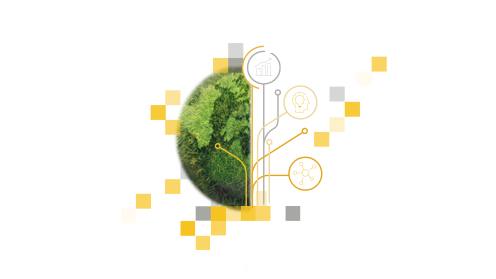Transporeon CEO Stephan Sieber recently joined Maria Villablanca, co-founder and CEO of the Future Insights Network, on her Transform Talks podcast to talk about the art of keeping things simple, how to leverage platform innovations to overcome supply chain challenges, and what the future holds for supply chain and transport.
Keep reading to get a summary of this dynamic duo's interesting chat or click here to listen to the podcast it in full.
Maria Villablanca: Transporeon’s headquarters are located in the city of Ulm, in the south of Germany, which is the famous birthplace of Albert Einstein, who once said “Everything should be made as simple as possible, but not simpler.” So, when you think about the work that you're doing at Transporeon, how true would you say that is?
Stephan Sieber: I think it's very true. I normally say things need to be simple, but not simplistic, right? I think it's a key task of leaders, not only CEOs but any leader, to sort of boil down complex stuff into simpler and more understandable concepts. That's the only way to focus and keep the dynamics in an ever more volatile, interdependent, connected world.
Maria Villablanca: I want to talk about the idea of a platform of innovations to overcome some of the challenges supply chains have been facing for the last few years. The biggest thing that people tell me is that they're stuck with how to operationalise innovation, transformation, and overcoming crisis and complexity. So, could you maybe talk to us a little bit about what it means for you and your company? What valuable lessons have you learned?
I truly believe that nobody is able to manage all of these crises in parallel without adequate support and technology — which needs to be available at marginal cost at any point in time at any place in the world to help us to manage complexity a lot better than most of us do today.
Stephan Sieber: Good question. We've gone through four challenging but also very exciting and successful years, which always makes things easier. We've doubled the size of the company mainly through organic growth. On top of that, we've done seven acquisitions, which mainly brought additional capabilities to the platform and added new talent, new thoughts and new creativity to the company. And then, you know, over those years, we've sort of slipped into what I call a “poly-crisis”. It's a conjuncture of several interconnected areas in crisis: supply chain, energy, geopolitical, economic, financial and climate. And I truly believe that nobody is able to manage all of these crises in parallel without adequate support and technology — which needs to be available at marginal cost at any point in time at any place in the world to help us to manage complexity a lot better than most of us do today.
Maria Villablanca: We've had relative stability for the last seven years, except for maybe localised crisis. And now we do have a “poly-crisis” or what I call a “cocktail of crises” – this is, like you say, economic issues, supply issues, demand issues, energy issues, war. So, you're right, digitisation plus talent are probably going to be the things that get us out. Now, I'm curious about the common pitfalls that many companies fall for when attempting to leverage platform innovations to overcome supply chain challenges. And you're in a really lucky position because you work with so many different types of companies (shippers, forwarders, carriers, retailers). I'd be interested to hear your perspective on that.
Stephan Sieber: Absolutely. First of all, in my opinion, one of the absolute key attributes of a platform is that it's not implemented to the benefit of one single party, it's implemented to the benefit of a network. And in our case, we solve the freight problems where they actually occur, in between companies, and not inside a single company. Now, that requires all the parties to some extent to collaborate, which is tough because you need to align the interests. So, you know, one pitfall that we see is that customers tend to try to make projects too big. And here at Transporeon, we actually try to cut it down, focus primarily on the problem we need to solve and get it sorted out. Once the customer cashes in the benefits of their investment, then we'll think about the next steps. So, we cut it in small pieces, do one thing at a time, and understand that a platform has four major functions. It's an accumulation of tools and services with a set of rules and standards that empower a network, a community. And within this network, everybody will enjoy lower transaction costs in both matchmaking and process execution. Now, I think that rules and standards are critical, we need to agree on a certain taxonomy and a certain way of doing business with each other. Otherwise, we will never be able to exploit those network effects. And everybody wants a platform, but hardly anybody is willing to really go that step and say I am committed to being part of that. So that's a bit our role as the orchestrator, as the operator of a platform we created.










